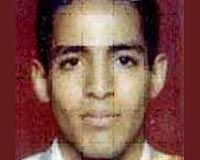| . |  |
. |
Jakarta (UPI) Sep 17, 2009 At least four jihadist leaders have been reported killed in Somalia, Indonesia and Pakistan in quick succession in recent days in what intelligence officials see as a heavy blow for al-Qaida. By all accounts, the terrorist network -- its leaders holed up in the rugged badlands of Pakistan and largely cut off from their fighters -- appears to be under pressure at every turn eight years after Sept. 11 and is finding it increasingly difficult to attract recruits to attack the West. Pakistani military officials claim that Ilyas Kashmiri, al-Qaida's operations chief in Pakistan, was killed along with an Uzbek militant commander named Nazimuddin in U.S. missile attacks on a compound in northern Waziristan on Sept. 7. Kashmiri, a Pakistan national, directed all al-Qaida's operations in Pakistan, where the jihadists and their Taliban allies are locked in an escalating war with the U.S.-backed Pakistani military. According to U.S. intelligence officials, he also was involved in recruiting and in conducting attacks outside Pakistan. He was also believed to have been involved in two failed assassination attempts on Pakistan's strongman president, General Pervez Musharraf, in late 2006. The U.S. campaign of using missile-armed unmanned aerial vehicles to attack suspected hideouts and command centers has killed a score of senior militants over the last year. Among them was Pakistani Taliban chief Baitullah Mehsud, one of the most senior figures to have been assassinated. On Monday, helicopter-borne U.S. commandos ambushed a militant convoy in a remote area of southern Somalia and claimed to have killed Saleh Ali Saleh Nahban, a key figure in the militant al-Shahab movement fighting the U.S.-backed transitional government there. Nabhan was considered the ringleader of an al-Qaida cell that bombed a hotel in Mombasa, Kenya, killing 11 Israelis and three Kenyans, in November 2002. He was also involved in a simultaneous missile attack on an Israeli airliner shortly after it took off from Mombasa airport en route for Israel. The airliner was not hit. On Wednesday, Indonesian counter-terrorism forces killed Noordin Mohammed Top, considered the top al-Qaida leader in Southeast Asia, according to national police chief Bambang Hendaro Danuri. Top, a Malaysian, was the alleged mastermind of a string of bombings carried out by Jemaah Islamiah, al-Qaida's Indonesia-based network in Southeast Asia, since 2002. Hundreds of foreigners and Indonesian perished in those attacks. One of his key bomb makers, identified as Bagus Budi Pranoto, was also reported slain when the fugitives were cornered in a safe house in the town of Solo in central Java. Top was seen as the last of Jemaah Islamiah's veteran cadre. The group itself has been decimated and splintered over the last two to three years. The killing of so many pivotal jihadist chieftains in widely separated parts of the globe in so short a time has never happened since al-Qaida began operating in the late 1990s. Western intelligence officials were reluctant to claim that al-Qaida had been dealt a deadly blow because the jihadists have demonstrated in the past that they were able to replace senior commanders quite quickly. But these officials believe that the impact of these recent losses will be magnified among al-Qaida operatives and their allies in the largely autonomous networks that have sprung up around the globe since 2001. They talk of growing evidence that jihadist morale is falling due to the unrelenting attacks by the U.S. killer drones, reflecting a vast improvement in intelligence about key jihadists that indicates traitors within the networks, the disruption of electronic communications and a growing rejection of Osama bin Laden's apocalyptic philosophy among Muslims. Intelligence garnered from captured jihadists, particularly Western recruits, suggests that the terrorist network is weakening, according to British officials. Britain's Guardian newspaper reported Sept. 10 that European volunteers "told of crossed wires and confusion" within al-Qaida's ranks. They spoke of "the almost neurotic concern about invisible 'chips' supposedly planted by spies to guide in missile attacks," the newspaper reported. Nigel Inkster of the International Institute for Strategic Studies in London, a former deputy director of Britain's Secret Intelligence Service, better known as MI6, commented: "It's a lot harder for al-Qaida Central to continue to orchestrate a coherent suite of operations against Western targets." Share This Article With Planet Earth
Related Links The Long War - Doctrine and Application
 U.S. commandos 'kill jihadist leader'
U.S. commandos 'kill jihadist leader'Mogadishu, Somalia (UPI) Sep 15, 2009 The reported assassination in Somalia of one of Africa's most wanted jihadists by U.S. Special Forces underlines concern among Western intelligence services that al-Qaida is moving veteran fighters to the Red Sea and the Horn of Africa. According to U.S. and Somali officials, the U.S. troops carried out the attack Monday in four helicopters launched from an American warship in the India ... read more |
|
| The content herein, unless otherwise known to be public domain, are Copyright 1995-2009 - SpaceDaily. AFP and UPI Wire Stories are copyright Agence France-Presse and United Press International. ESA Portal Reports are copyright European Space Agency. All NASA sourced material is public domain. Additional copyrights may apply in whole or part to other bona fide parties. Advertising does not imply endorsement,agreement or approval of any opinions, statements or information provided by SpaceDaily on any Web page published or hosted by SpaceDaily. Privacy Statement |